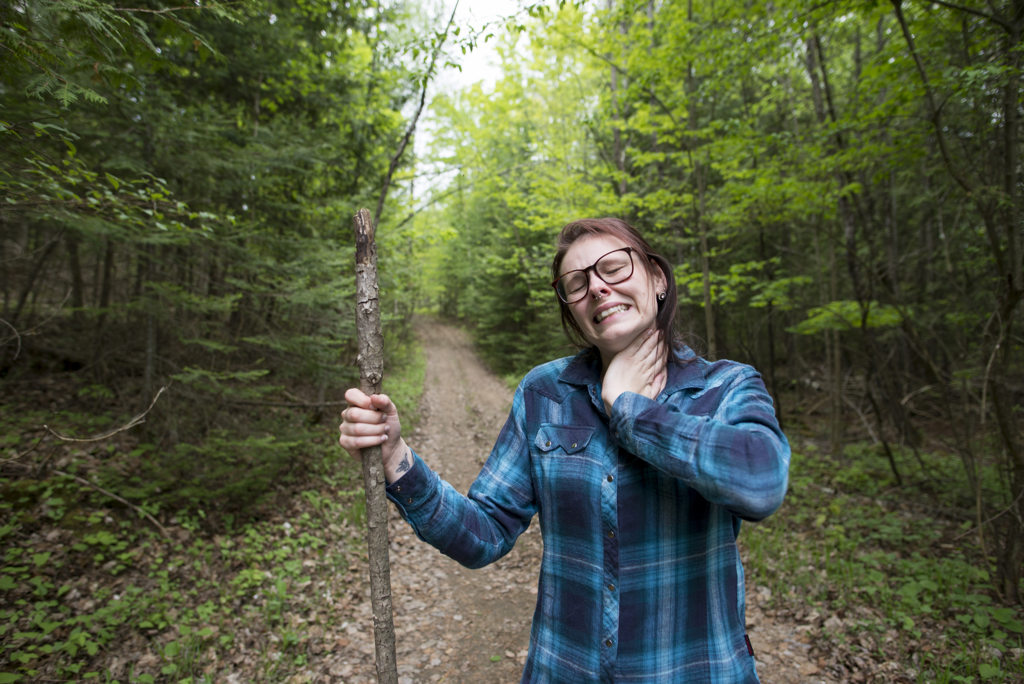Creepy Crawlers: How to Treat Common Bites and Stings

Summer is here, and so are the bugs. As we spend more time outdoors this season, make sure you know how to treat common bites and stings, as well as when you should seek professional medical care.
If you experience a mild reaction from a bite or sting, first move to a safe area to avoid additional bites and then remove any stingers that may still be in your skin. Gently wash the area with mild soap and water. If the bite occurs on an arm or leg, elevate it to reduce swelling. An ice pack applied to the affected area for 15 minutes every hour can also help itching as well as reducing swelling.
“For bee stings and other bites that that are painful, take an over-the-counter pain reliever, such as acetaminophen or ibuprofen,” said Karrie L. Kiskaddon, MD, a board-certified physician with Penn Highlands Family Medicine in DuBois. “For bites that itch, apply an over-the-counter anti-itch cream, such as hydrocortisone, or take an over-the-counter oral antihistamine. Be sure to follow the directions on the label for any medication you take.”
If you experience even one or two symptoms of anaphylaxis, such as trouble breathing; swelling of the lips, face, eyelids or throat; dizziness, fainting or unconsciousness; a weak or rapid pulse; hives; or nausea, vomiting or diarrhea; seek immediate medical attention.
Spider bites can be irritating, but most spider bites are not life-threatening and can be treated at home. Most spider bites can be treated like other bug bites: clean the area, apply a topical antibiotic, elevate the area, apply a cool compress and use an over-the-counter pain reliever if needed.
If you suspect that you were bitten by a dangerous spider, such as a black widow or brown recluse, seek medical care right away. You should also seek immediate care if you have severe pain, abdominal cramping, a growing wound at the bite site, problems breathing or swallowing or if the area of the sore has spreading redness or red streaks.
Most spider bites heal on their own in about a week. If you notice that the bite area is worsening or becoming infected, see your doctor.
Most tick bites are painless, which is why it is important to check your skin for ticks after spending time outdoors. Tick bites often cause just mild symptoms, such as a change in skin color, swelling or soreness. In some cases, however, ticks can transmit illnesses like Lyme disease or Rocky Mountain spotted fever. Generally, a tick needs to be attached for 36 hours to transmit Lyme disease, but other illnesses can be transferred within minutes or hours.
A small bump often appears at the site of the bite, but if it develops into a larger rash or you develop a rash anywhere else, possibly with a bull’s-eye pattern, it may indicate Lyme disease, in which case you should see your doctor. You should also see your doctor if you experience flu-like symptoms, if you think the bite is becoming infected or if you suspect you were bitten by a deer tick.
“If you find a tick on your body, remove it by using tweezers to grab it as close to the skin as possible,” said Dr. Kiskaddon. “Pull it out gently using a slow, upward motion. Try not to twist or squeeze the tick, and contrary to popular belief, you should not use petroleum jelly, fingernail polish or matches to remove it. Once the tick is removed, take a picture of it, which can help a healthcare provider identify if you are at risk for disease. Be sure to use tweezers rather than your bare hands to handle it.”
If you experience a severe headache, difficulty breathing, paralysis or heart palpitations, call 911.
If you are bitten by a snake, you should call for emergency help immediately. While waiting for help to arrive, wash the area with soap and water; keep the area still and below the heart; cover the area with a clean, cool compress; note the time of the bite; and draw a circle around the affected area. Do not apply a tourniquet, and regardless of what you may see on TV, do not attempt to suck out the venom.
Penn Highlands Healthcare offers convenient walk-in care for insect bites, tick bites, minor injuries and more at its QCare locations in Northwestern/Central Pennsylvania. For a QCare near you, visit www.phhealthcare.org/qcare. In addition, the health system offers family practice physicians and providers throughout Pennsylvania. For more information, visit www.phhealthcare.org/familymedicine.
If you think you are experiencing a life-threatening condition, call 911 or seek immediate medical attention at the nearest emergency department.

